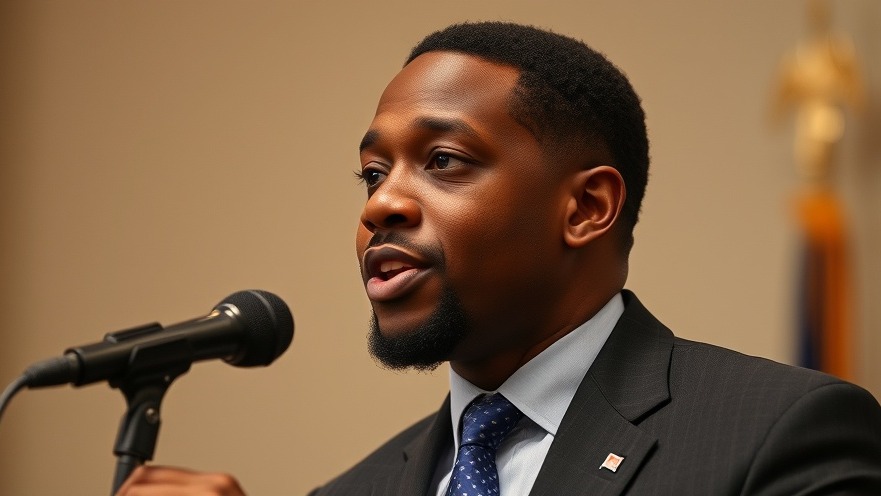
A Rising Star in Texas Politics
The political landscape in Texas is shifting as U.S. Representative Wesley Hunt, a Republican congressman from Houston, has officially declared his candidacy for the U.S. Senate. His entry into the race adds complexity to an already challenging primary between incumbent Senator John Cornyn and Attorney General Ken Paxton. With the Texas Republican primary election set for March 2026, Hunt's move has ignited debates around the future of Texas leadership and the broader implications for GOP unity.
Hunt’s Bold Move: A Strategic Opportunity
Wesley Hunt's decision to run for Senate has not come without its challenges. As a relatively new face in Texas politics, having been elected to the House just in 2020, he is opting to vacate a safe seat after just two terms. Hunt's supporters assert that he can resonate more with the MAGA-centric voters of Texas, contrasting himself from Cornyn's establishment reputation and noting that he holds none of Paxton’s controversial baggage. "This race will finally be about what's most important: Texas," Hunt stated, positioning himself as a candidate focused on the state's core issues, including energy security and border control.
Political Allies and Ad Spending
Hunt has been strategically preparing for this campaign for months, with allied organizations pouring approximately $6 million into advertisements aimed at boosting his public profile. This level of funding places him in a competitive position against seasoned incumbents like Cornyn, who has formidable backing from party leaders in Washington, including Senate Minority Leader John Thune. Even so, Hunt maintains that the decision-making power lies with Texas voters, rejecting warnings from GOP establishment figures who suggest that a divided primary could endanger the party's chances in the general election.
Inside the Contest: Cornyn vs. Paxton
The rivalry between Cornyn and Paxton has heated up, fueled by Paxton's aggressive campaign strategies and their history of mutual attacks. Polling suggests a narrowing gap between the two, with Hunt entering the fray potentially complicating the dynamics further. Some analysts believe that Hunt's candidacy could dilute votes away from both contestants, transforming the primary into a true contest of ideologies rather than a mere face-off. Cornyn has faced criticism from his own party base, particularly after endorsing bipartisan legislation on gun safety, which has alienated some conservative voters.
The Road Ahead: Implications for Texas and Republicans
As the primary approaches, the race reflects broader challenges facing the Republican Party, particularly regarding its perception among Texas voters. With candidates focusing on strict conservative principles, voters are grappling with what they seek from their leadership. Hunt's proposition of a new conservative voice is indicative of a growing desire among some factions of the Republican base for a shift away from traditional party politics.
Conclusion: A Call to Engage
With Wesley Hunt shaking up the Texas Senate race, the implications extend beyond local politics; they touch upon national attitudes towards Republican leadership and governance. As supporters and detractors alike prepare for the March primary, Texans are reminded that the future of their state is at stake. For citizens engaged in Texas politics, it's paramount to stay informed and active. Participate in the conversation, and make your voice heard as candidates define their vision for Texas and America.
 Add Element
Add Element  Add Row
Add Row 



Write A Comment